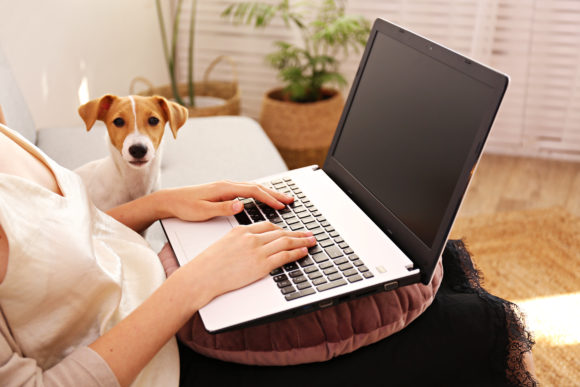A large number of Americans working from home due to the coronavirus pandemic aren’t worried about cyber attacks even though they’re at greater risk compared to working in the office, Chubb found in a new survey. Some are even using personal email or devices to conduct business despite the risks.
On top of that, they’re also not taking ergonomic steps to prevent injury, Chubb said.
“By sharing the findings of this survey, we hope to build awareness so that workers and their employers can take steps to mitigate these and other risks,” Sean Ringsted, chief digital officer and chief risk officer at Chubb, said in prepared remarks.
[See related story:With COVID-19, Carrier Execs, Employees Working From Home Abandon Regular Office Hours]
Chubb’s survey looked at how Americans have been faring doing their jobs in home offices since they began to quarantine during the coronavirus pandemic. More than 1,200 Americans between the ages of 20 and 65 submitted responses, the insurer said.
According to the survey, approximately 46 percent of consumers said they were concerned about cybersecurity while using tools to work remotely. Underscoring their comfort level, nearly 50 percent said they regularly or sometimes conduct business on their personal devices or on their personal email account, Chubb said.
The risk is real. One in 10 wealthy respondents said they have been the victim of a cyber attack while working from home. Among all respondents, about 3 percent said a cyber attacker struck during remote work.
And then there are the home “workplace” injuries. Chubb found that 41 percent of respondents working from home are reporting new or elevated back, wrist or shoulder pain. According to the results, 50 percent of respondents ages 20-25 reported these types of pain. The number was closer to 30 percent for those ages 56-65.
Productivity and Staying Focused
Overall, however, respondents said that they’re excelling with their work and staying focused, boosting productivity even under potentially distracting work-from-home conditions, the survey found. About 37 percent working from home said they’re more productive and about a third said they are working at levels rivaling what they could produce in the office.
Focus during work time is also strong. About 83 percent said they’re working the same or more hours at home versus office time, with 37 percent saying they work longer hours.
Another 17 percent of respondents said they are working more than 10 extra hours per week.
Other result highlights:
- Workers are eating, snacking and drinking more at home. About 92 percent said they snack as much or more at home compared to the office, with 42 percent saying they snack more at home.
- Approximately 50 percent said they drink the same amount of alcohol as per usual, but 26 percent say they drink more now. Approximately 23 percent said they now drink less. About 34 percent of respondents ages 20-35 are seeing the most higher alcohol consumption. The number is at 15 percent for those ages 56- 65.
- At 68 percent, a large number of Americans working from home are worried about their financial well-being or the financial security of their families. Consistent, high levels of concern run across genders and all income groups and ages.
The full Chubb report is “Resilient, Committed, Engaged and Worried: The Experiences and Risks of Americans Working from Home During COVID-19.” Chubb’s research was conducted by Dynata, a provider of first-party consumer and professional data. U.S. residents participated in the survey, had a minimum household income of $50,000 and had to have started working at home due to COVID-19.
Source: Chubb





















 Premium Slowdown, Inflation Factors to Lead to Higher P/C Combined Ratio: AM Best
Premium Slowdown, Inflation Factors to Lead to Higher P/C Combined Ratio: AM Best  New Texas Law Requires Insurers Provide Reason for Declining or Canceling Policies
New Texas Law Requires Insurers Provide Reason for Declining or Canceling Policies  Beyond Automation: The Emerging Role for Contextual AI in Insurance
Beyond Automation: The Emerging Role for Contextual AI in Insurance  AI Got Beat by Traditional Models in Forecasting NYC’s Blizzard
AI Got Beat by Traditional Models in Forecasting NYC’s Blizzard 
















